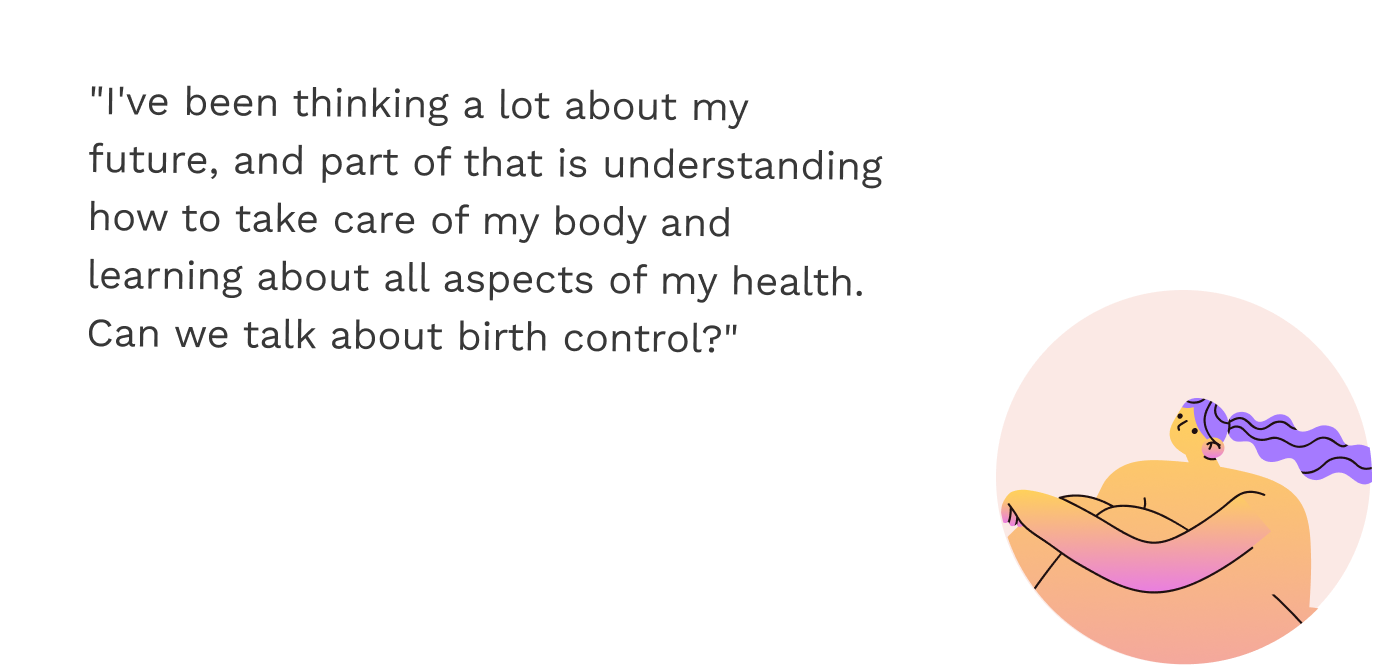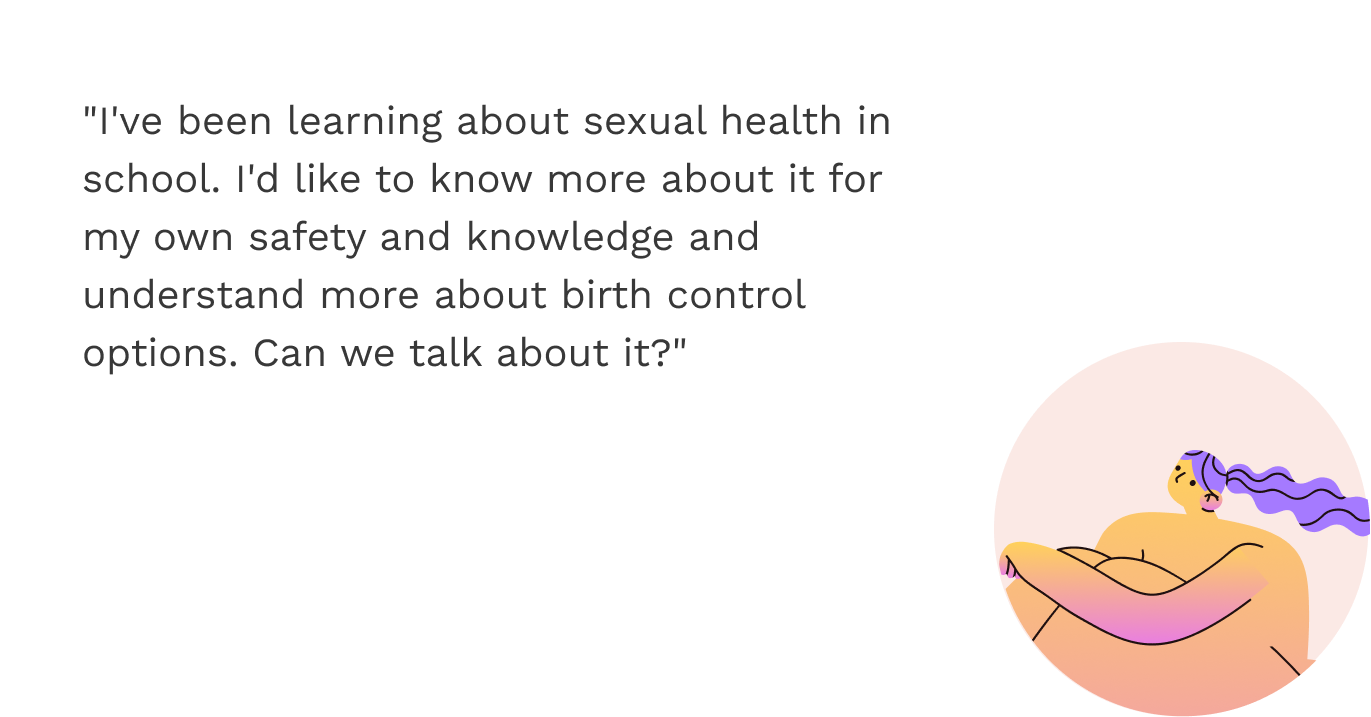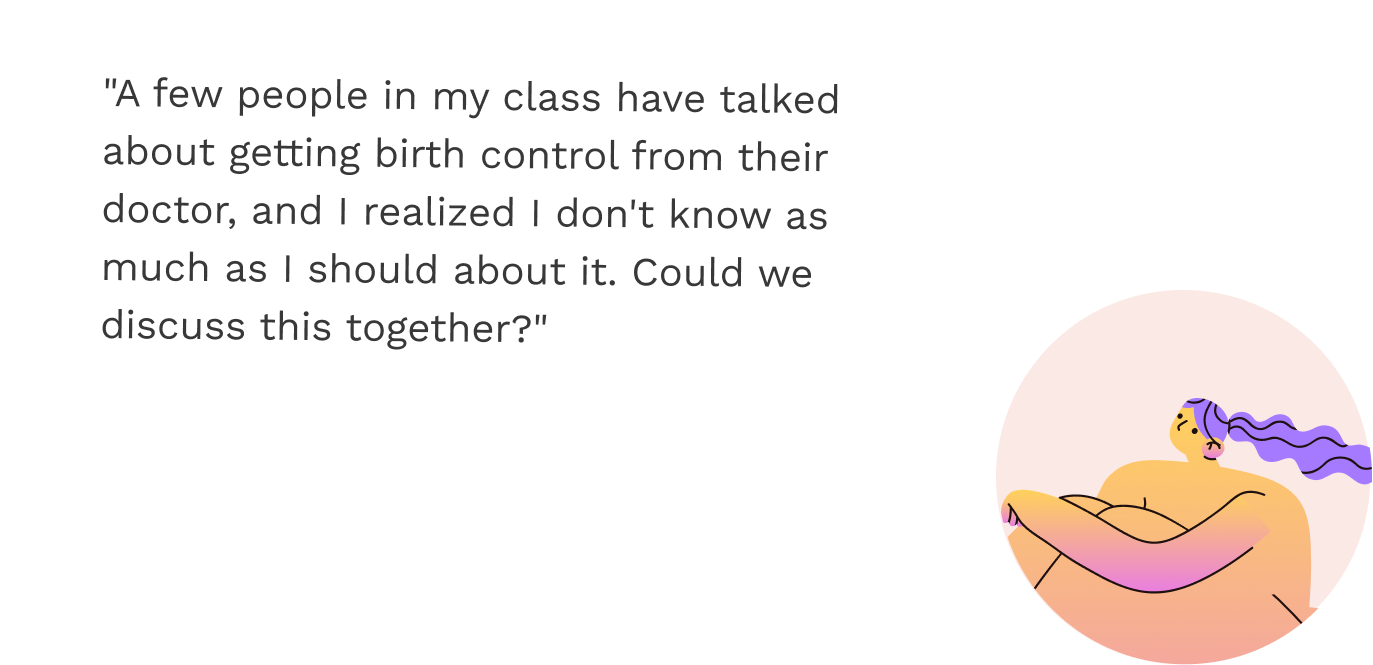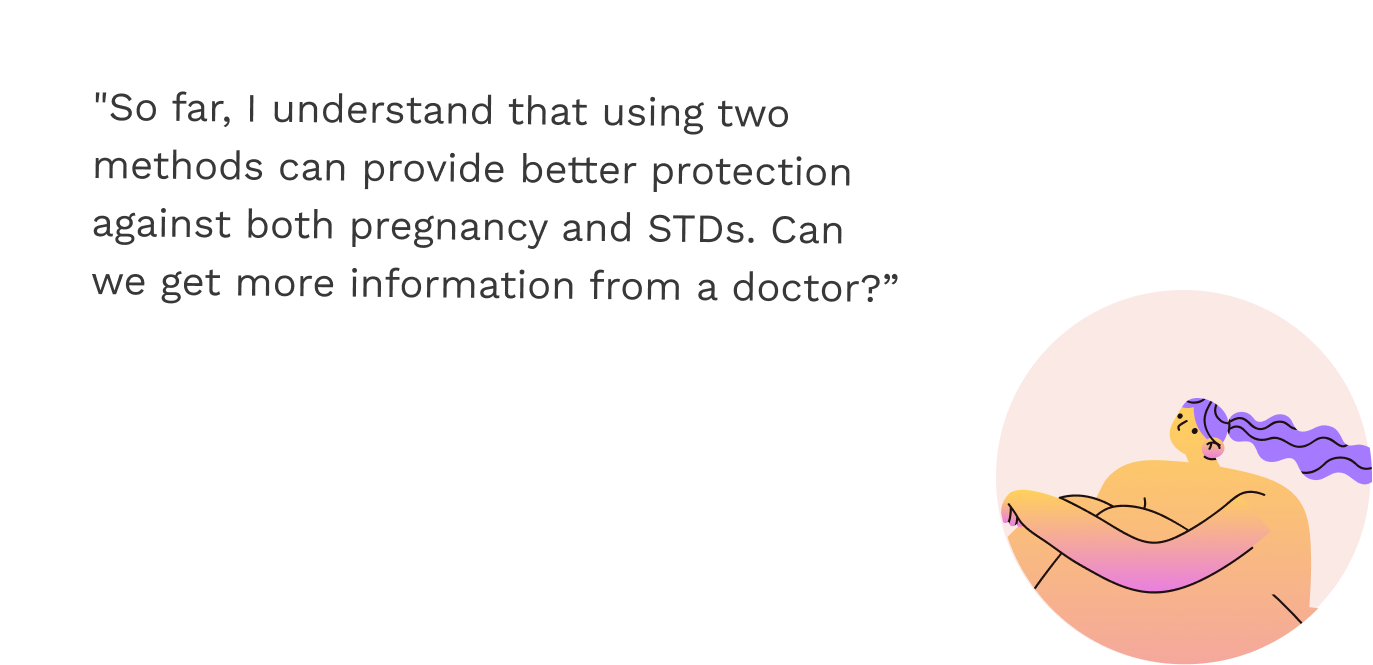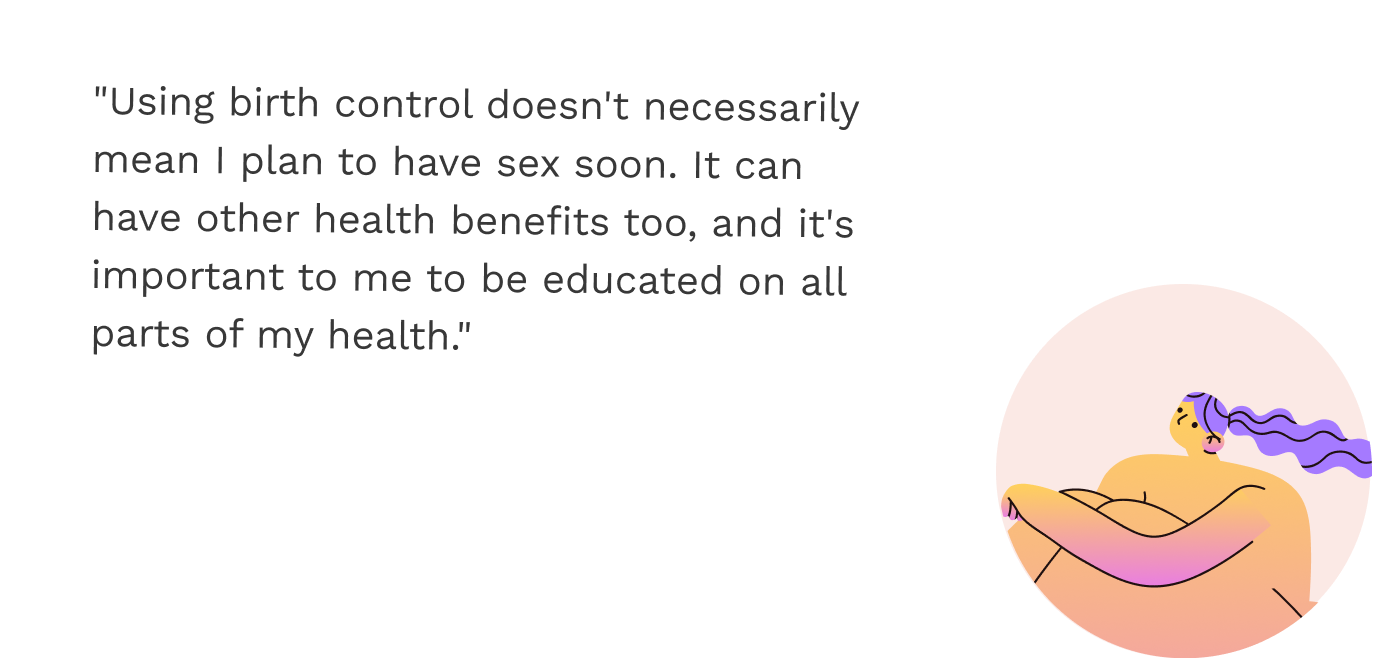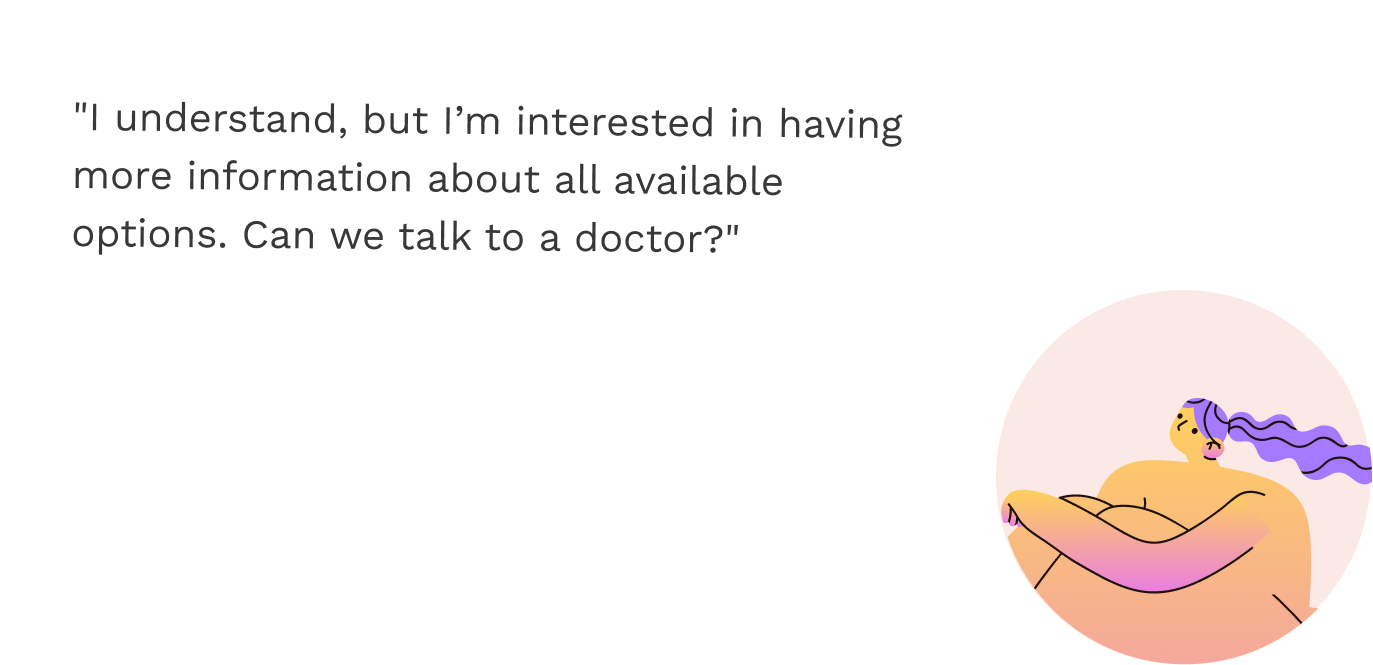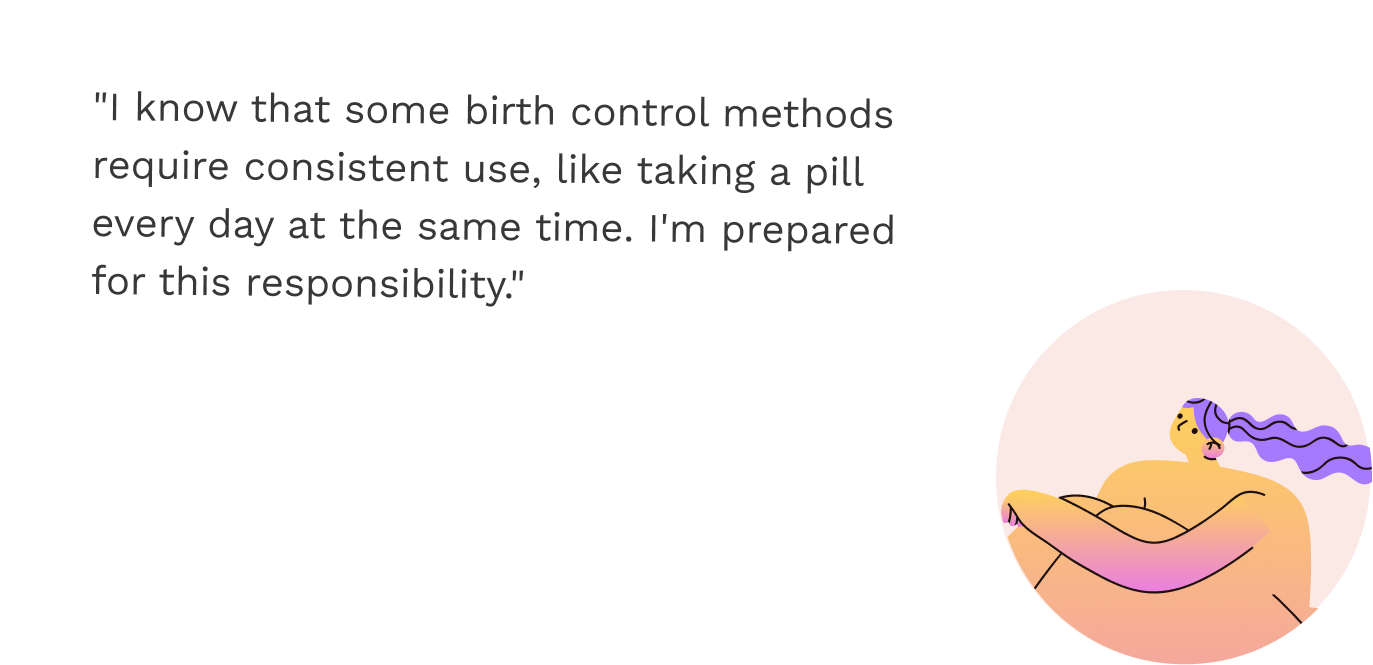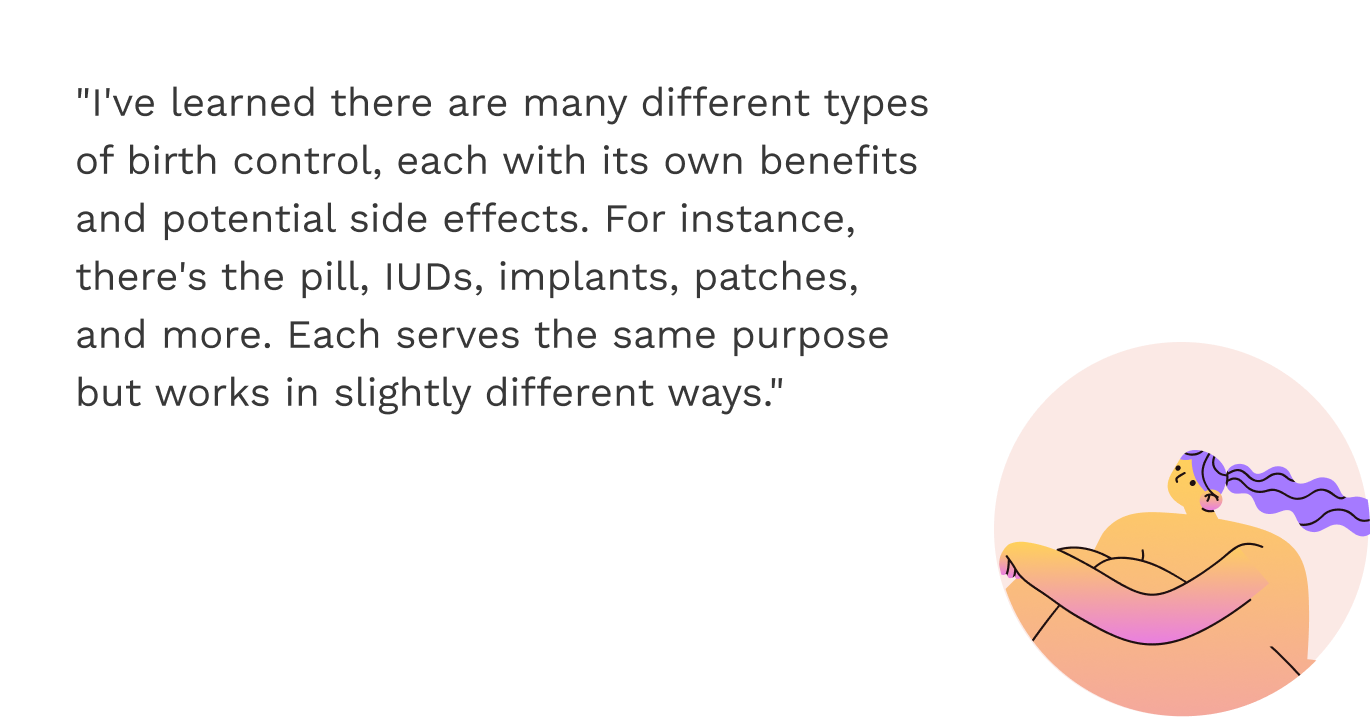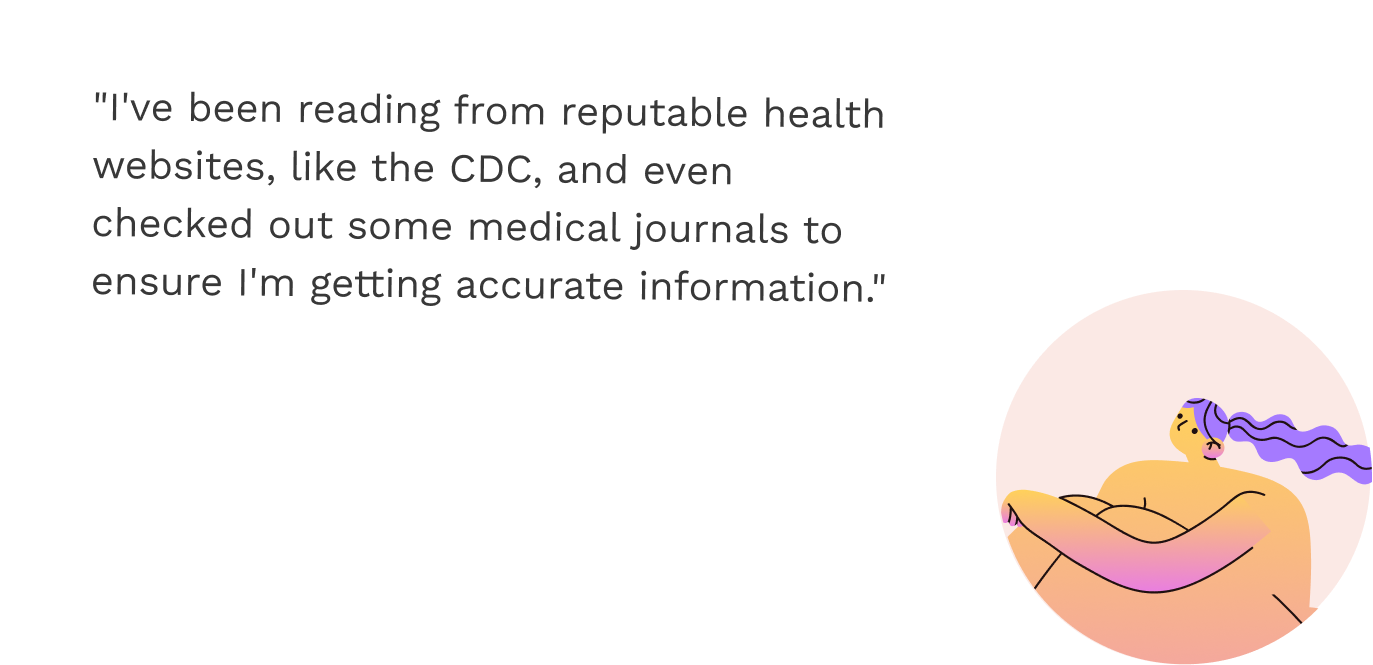Talking to Parents

Tips for talking to your parents about birth control
If you’re under 18 in Dallas, Texas you will need your parent’s consent to get birth control. If you’re on your parent’s insurance, you may also be wondering how to go about having the conversation about birth control with them. Don’t worry, we’ve got some tips!

Where might you have the conversation?
Choosing the right setting for the conversation about birth control can be just as important as what you say. It is important that you and your parent feel comfortable, and different locations can offer privacy or familiarity to help facilitate an open and honest conversation.
Here’s some places to try…
- At home
- During a car ride
- During a walk or hike
- At a coffee shop or casual restaurant
- In a park

Talking to a few different parent types…
The Open-Minded Parent
It’s best to do your research before talking to them. Show that you appreciate them being open to this, and suggest going to talk to a doctor for more information. They want to know what’s up and may even accompany you to the doctors.
When talking to them you could say…
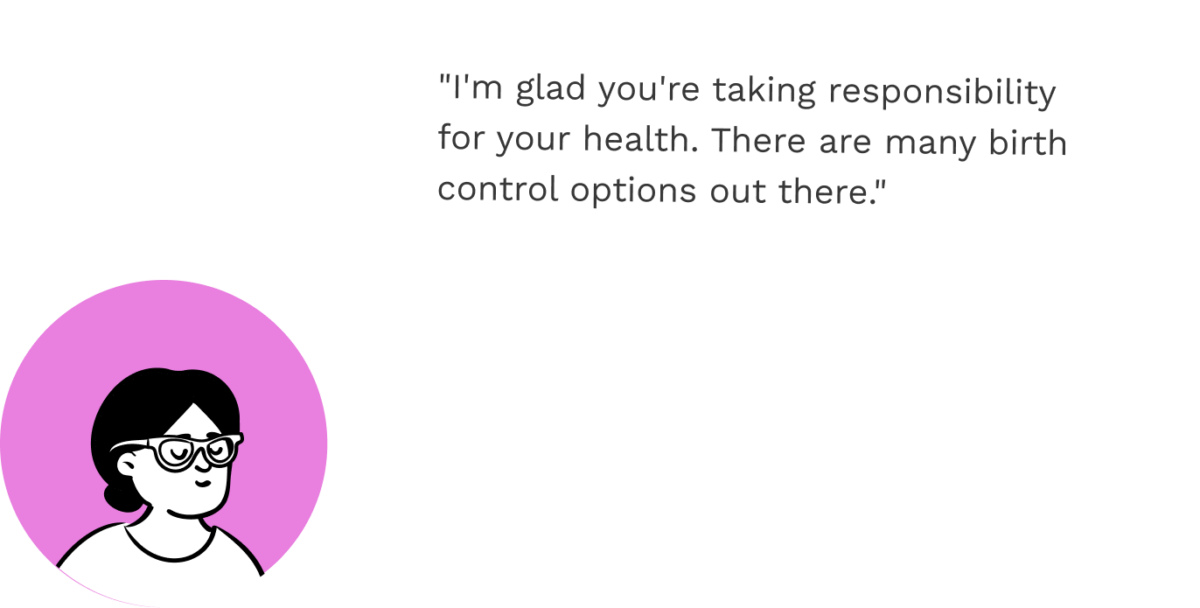
The Cautious Parent
This parent may be hesitant to discuss birth control, but they recognize the importance of their teen’s health and future, and seek comprehensive information about birth control options. Share with them what you’ve researched, highlight the benefits, and the resources that is available in terms of who to go to for help and more info.
When talking to them you could say…

The Strict Parent
This parent might hold conservative views and disapproval of birth control. It’s important to remain calm and respectful of their opinion. Sometimes it can help to point out the benefits of birth control besides preventing pregnancy, and suggest bringing a doctor into the conversation.
When talking to them you could say…

Alternatives to talking to your parent
We know it can be hard to approach a parent or guardian sometimes. Here are some other ideas to stay safe if talking to your parent is not an option.

